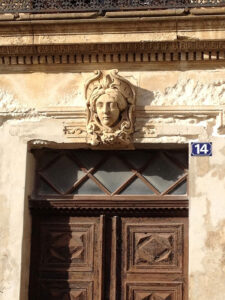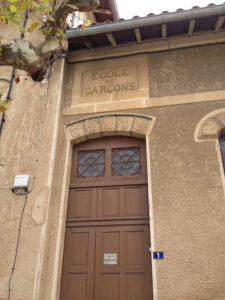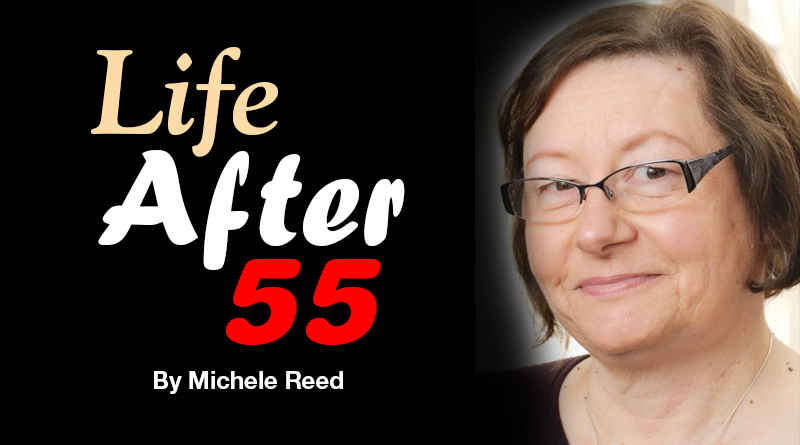A Whole Different World Outside Our Door
By Michele Reed
bazanreed@hotmail.com
Photos by Bill Reed

I was talking with a loyal reader, who had studied at The Sorbonne in Paris, when something she said made me smile. “Why is it you and Bill love going to France? Is it because, when you step out your door, you’re in a whole different world?”
How right she was!
It’s a world of extreme politeness. You greet everyone with “Bonjour!” and not just “Bonjour,” but, “Bonjour, Madame”, or “Monsieur”, or “Messeur-Dames”, an interesting French construction that means Mr. and Mrs., or sir and ma’am.
I’ll never forget the day I stepped out of my door to buy the morning baguette, only to be greeted by 30 schoolchildren, led by their teacher on their way up the hill to tour the Mairie, or city hall. Each child raised his or her hand in greeting, “Bonjour, Madame!” 30 times!
It’s a world of great age. The school those children were from? Our village school was built in 1905 by the winegrowers of the region. Wanting to show their civic pride, they constructed a huge stone edifice in grand style, with separate entrances for boys and girls: garcons et filles.
Up near the church, the foundations of which date to the middle ages, you can see the village gate with a statue of St. Cerone, our patron saint, still guarding the commune. It dates from the sixth century.
And our neighbor’s house has a scallop shell molded high into the wall. The symbol of Saint Jacques, it marks his house as a medieval pilgrim hospital on the pilgrimage route to Compostela.
Even private homes bear the mark of history — here, a head of Ceres, the Roman goddess of the harvest, commemorating our area’s agricultural heritage; there, a Cross of Languedoc, symbol of our region, on the wrought iron gates of a home.
It’s another world, where people do their shopping almost daily, buying fresh food and veg, crusty bread and wine produced in our region. It’s a ritual, rather than an inconvenience, and a chance to visit with neighbors and shopkeepers at the end of a busy workday.

Food is important, and the lunch hour is sacred, with many businesses closing and everyone taking an hour or hour and a half to go home or to a café to enjoy a full meal — often three courses, complete with bread and wine. When we visit our favorite café during the week, we have to reserve a table among the work groups happily chatting — about anything but work!
The pace of life is slower, and people seem to take a delight in savoring the little pleasures of life. There’s the Sunday promenade, a walk taken with family or friends, usually in the country, but sometimes around town. We head out to the vineyards, just outside the village, and take in the view of grapevines stretching as far as the eye can see, with the buzz of bees in our ears and the heat of the sun baking our skin.
Public transportation is excellent and people make use of it daily. We miss waiting for the bus every day, sharing the bus stop — and lots of gossip— with our next-door neighbor, Rosa, and her best friend, Helena. They’d be off to lotto (bingo), while we carry our panier, or market basket, as we prepare to faire les cours (literally to make the rounds, but an idiom for doing your shopping).
So that reader was right, it is a very different world, and as the French say, “Vive la difference!”

